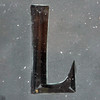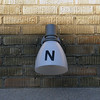OK, I've added a few links to the "Favorite Music" and "Favorite Restaurants" pages, and listed this blog.
But as the wikis we use at the library (see my last post) are all hosted on PBwiki, this is nothing new. I've never been wild about their graphical editor, and their new version doesn't seem all that different. But it does get the job done if you're not too picky.
(A side note - I'm getting a little ahead on this now, so that I can concentrate on other things during the end-of-the-month rush that will be coming in a couple of weeks.)
Tuesday, December 16, 2008
Thing #17: Wikis
We've been using wikis for library staff for some time. We started by taking a set of "useful Web links" pages and turning them into a wiki so that staff wouldn't have to wait for me to get around to editing the Web pages in order to link to useful sites. Some other uses of the wiki that have been added since include:
One further observation: sometimes it's hard to decide whether a blog or a wiki is the best approach for a particular function. In many cases, arguments can be made both ways.
- a missing holds wiki, to help staff throughout our multi-branch system track down holds that get misdirected
- a "TechTime Share" wiki, where items demonstrated at an informal monthly tech-oriented training session are posted
- a discussion wiki for the book Wikinomics, which was chosen for a "one book, one staff" reading program earlier this year (this will be replaced with a new one in 2009)
- a wiki where staff who are participating in Nebraska Learns 2.0 can post links to their blogs
One further observation: sometimes it's hard to decide whether a blog or a wiki is the best approach for a particular function. In many cases, arguments can be made both ways.
Monday, December 15, 2008
Thing #16: Library 2.0
There are lots of good observations in the various articles that were posted. The article that resonated with me most was John Blyberg's. Web 2.0 tools are like any of the other tools in our professional kit: implementing them without a clear idea of why we're doing so is counter-productive. This is especially true in a time of shrinking budgets, when library staff are continually being asked to do more with fewer resources, and especially with fewer human resources.
Properly implemented, these tools should help us be more effective and efficient in what we do. A book talk presented to a half-dozen patrons is an expensive use of staff resources; record that talk and put it out as a podcast, and you have the potential to reach a large number of patrons for just a little more investment in staff time. Provide a way for readers to enhance your catalog with their own ratings and reviews, and hopefully you'll strengthen their connection to the library as well as provide a useful readers' advisory resource.
But there is a cost to implementing these tools, especially in terms of staff time, and so it becomes especially important to carefully choose what we do. Implementing change purely for the sake of changing is more likely to annoy the users we already have than to attract new ones. Providing a true enhancement to an existing service can improve the experience for existing patrons and attract new ones.
Properly implemented, these tools should help us be more effective and efficient in what we do. A book talk presented to a half-dozen patrons is an expensive use of staff resources; record that talk and put it out as a podcast, and you have the potential to reach a large number of patrons for just a little more investment in staff time. Provide a way for readers to enhance your catalog with their own ratings and reviews, and hopefully you'll strengthen their connection to the library as well as provide a useful readers' advisory resource.
But there is a cost to implementing these tools, especially in terms of staff time, and so it becomes especially important to carefully choose what we do. Implementing change purely for the sake of changing is more likely to annoy the users we already have than to attract new ones. Providing a true enhancement to an existing service can improve the experience for existing patrons and attract new ones.
Monday, December 8, 2008
Thing #15 - SlideShare
OK, I've set up a SlideShare account; I left a comment on one of Michael's slideshows and found a presentation on Kubuntu Linux (see below) to add as a "favorite." I can see where SlideShare would be useful; the ability to embed slideshows into a Web page could be especially handy (though I don't have anything currently that I would use this for).
But I encountered a few "issues" in getting started with this. First, the embedded slideshow on the page for this "Thing" never did work for me, either in IE or in Firefox. Second, the captcha on the signup page would not work for me in IE, though I had no problem with it in Firefox. And third (though this is more a problem with slideshow presentations themselves than with SlideShare), a lot of the presentations I looked at just didn't work well without something else to accompany them.
I keep this in mind for possible future use.
But I encountered a few "issues" in getting started with this. First, the embedded slideshow on the page for this "Thing" never did work for me, either in IE or in Firefox. Second, the captcha on the signup page would not work for me in IE, though I had no problem with it in Firefox. And third (though this is more a problem with slideshow presentations themselves than with SlideShare), a lot of the presentations I looked at just didn't work well without something else to accompany them.
I keep this in mind for possible future use.
Monday, December 1, 2008
Thing #14 - Delicious
I've been using Delicious for quite awhile, and find it invaluable as a way to easily bookmark sites to access from multiple computers. The social aspects of it don't do that much for me (see my comments about the social aspects of LibraryThing - they apply here as well), except that the resulting recommended tags are sometimes handy.
Some time ago I had looked into using Delicious as a way of revamping the "recommended Web links" section of the library's Web site, but at the time decided it wasn't suitable. Now that I've learned about link rolls and tag rolls, I may revisit that idea. (One complaint I have about Delicious is that the site itself doesn't make it easy to discover some of those additional tools.)
Some time ago I had looked into using Delicious as a way of revamping the "recommended Web links" section of the library's Web site, but at the time decided it wasn't suitable. Now that I've learned about link rolls and tag rolls, I may revisit that idea. (One complaint I have about Delicious is that the site itself doesn't make it easy to discover some of those additional tools.)
Monday, November 24, 2008
Thing #13 - Twitter
I'd heard of Twitter before but had never actually tried it; it never sounded appealing. Now that I've tried it ... well, I still don't really find it appealing. Trying to do this on any kind of regular basis would be one more distraction from whatever I'm trying to do. (Strictly speaking, any "tweet" that was really trying to honestly answer the question "what are you doing?" would have to say something like "I'm typing on Twitter.")
In a way, it reminds me of people who talk on their phones the whole time when they're supposed to be doing something else: the process of constantly talking about what they're doing would, I think, inevitably interfere with the main activity. At least Twitter might be less bothersome to others nearby.
I can't see this really fitting in with either my work or personal life; again, it would be mainly a distraction. I can see some value in libraries doing something like NLC_Reference does, but I can't help wondering if there might be better ways to do the same sort of thing.
One way I could imagine this being potentially useful would be for something like an online meeting between several people, all following each others' tweets, like a conference call via keyboarding. Is anyone using it this way?
In a way, it reminds me of people who talk on their phones the whole time when they're supposed to be doing something else: the process of constantly talking about what they're doing would, I think, inevitably interfere with the main activity. At least Twitter might be less bothersome to others nearby.
I can't see this really fitting in with either my work or personal life; again, it would be mainly a distraction. I can see some value in libraries doing something like NLC_Reference does, but I can't help wondering if there might be better ways to do the same sort of thing.
One way I could imagine this being potentially useful would be for something like an online meeting between several people, all following each others' tweets, like a conference call via keyboarding. Is anyone using it this way?
Monday, November 17, 2008
Thing #12: LibraryThing
I'd set up my LibraryThing account several months ago, and thought it looked like it could be useful, but I never got around to adding any books (until now). Adding the books is easy enough, but nonetheless I doubt that this is something I'll be able to keep up with.
The social aspect of this doesn't particularly appeal to me. I'm not that interested in finding out who else owns the same books that I do: I don't see from looking at this that common ownership of a particular book is a good predictor of common interests in other areas. (Or perhaps this just comes with being a troglodyte.)
I could see that having a remotely accessible catalog of one's own books could be useful when going to used book sales: you could check to make sure you didn't already have a particular book before buying it. There are a couple of problems with this, though. If you have a book collection large enough to make this necessary, you'd need a paid account (whether it would be worth the cost is debatable). More significantly, a large collection (especially of older books without ISBN's) would take considerable time to enter and keep up.
On the other hand, the Readers Advisory staff at our library has made good use of their LibraryThing account.
The social aspect of this doesn't particularly appeal to me. I'm not that interested in finding out who else owns the same books that I do: I don't see from looking at this that common ownership of a particular book is a good predictor of common interests in other areas. (Or perhaps this just comes with being a troglodyte.)
I could see that having a remotely accessible catalog of one's own books could be useful when going to used book sales: you could check to make sure you didn't already have a particular book before buying it. There are a couple of problems with this, though. If you have a book collection large enough to make this necessary, you'd need a paid account (whether it would be worth the cost is debatable). More significantly, a large collection (especially of older books without ISBN's) would take considerable time to enter and keep up.
On the other hand, the Readers Advisory staff at our library has made good use of their LibraryThing account.
Monday, November 10, 2008
Thing #11: Blog about Technology
This one should be easy... get ready for a rant.
Last week was one of those times that bring out the latent Luddite in me. In the middle of the week, a tech from a company that we sometimes use for tech-support odd jobs that we don't want to do ourselves showed up to do a long-postponed replacement of a piece of equipment, something that should have been a simple matter. But Something Went Wrong, and our ILS was down for most of the next 24 hours, and we're still having some cleanup issues from that.
Just at the same time this problem developed, an apparently unrelated problem at the telephone company's end disrupted Internet access for one of our branches. Wouldn't have been a big deal except for the wasted time caused by the assumption that two problems occurring at the same time would also share causality.
And just as we were starting to get those two issues straightened out, another (apparently unrelated) problem developed with one of our servers that caused the database of customizations for our public catalog to be corrupted. Not a big deal, I run weekly backups of that - except that the last two months of backups have disappeared. Still not sure what happened there.
So last week was not good from a tech standpoint. Technology can be wonderful, and I'm normally an enthusiastic user of computers, but when things go wrong, and especially when multiple things go wrong at the same time, it can be a headache.
I don't remember now where I read this, but someone has said that computers are very good for solving problems we wouldn't have if we didn't have computers. There seems to be some truth to that.
Last week was one of those times that bring out the latent Luddite in me. In the middle of the week, a tech from a company that we sometimes use for tech-support odd jobs that we don't want to do ourselves showed up to do a long-postponed replacement of a piece of equipment, something that should have been a simple matter. But Something Went Wrong, and our ILS was down for most of the next 24 hours, and we're still having some cleanup issues from that.
Just at the same time this problem developed, an apparently unrelated problem at the telephone company's end disrupted Internet access for one of our branches. Wouldn't have been a big deal except for the wasted time caused by the assumption that two problems occurring at the same time would also share causality.
And just as we were starting to get those two issues straightened out, another (apparently unrelated) problem developed with one of our servers that caused the database of customizations for our public catalog to be corrupted. Not a big deal, I run weekly backups of that - except that the last two months of backups have disappeared. Still not sure what happened there.
So last week was not good from a tech standpoint. Technology can be wonderful, and I'm normally an enthusiastic user of computers, but when things go wrong, and especially when multiple things go wrong at the same time, it can be a headache.
I don't remember now where I read this, but someone has said that computers are very good for solving problems we wouldn't have if we didn't have computers. There seems to be some truth to that.
Wednesday, November 5, 2008
Image generators
This one went better - I had some fun with it. The Custom Computer Keyboard gave me this - which I could really use sometimes:

And ALA's mini-READ posters gave me this (based on a Photoshopped picture from my sister):

It's easy to see where these tools could have application for our library Web site.
One other image generator tool we've used is Yearbook Yourself, which gave us this lovely photo:


And ALA's mini-READ posters gave me this (based on a Photoshopped picture from my sister):

It's easy to see where these tools could have application for our library Web site.
One other image generator tool we've used is Yearbook Yourself, which gave us this lovely photo:

More flickr
This one was almost a washout. I tried "Bubblr" and "Flickr Font" - couldn't get either one to work. Then I tried the "Flickr Logo Maker", which worked, but seemed pretty pointless - you could do pretty much the same thing in Word.
I had better luck with "Spell with flickr", which resulted in this:

















Not sure about its practical applications, though.
I had better luck with "Spell with flickr", which resulted in this:

















Not sure about its practical applications, though.
flickr - part one
This photo is of a violin made by my grandfather in 1955. My wife found it listed on the site of a violin dealer in Anchorage earlier this year and we made arrangements to purchase it. (No idea of how it ended up in Alaska.)
I've had a flickr account since Yahoo discontinued the old Yahoo Photos service last year. Flickr is great for sharing and finding photos (and adding them to blogs, obviously), BUT if your main interest is in using it just for sharing photos with a few friends and family members, and you don't need all of its special features, eventually you may find the limitations of the free account to be - well, limiting. I'm currently trying out Shutterfly for that purpose, and so far it seems OK. It remains to be seen how well I like it in the long run.
I've had a flickr account since Yahoo discontinued the old Yahoo Photos service last year. Flickr is great for sharing and finding photos (and adding them to blogs, obviously), BUT if your main interest is in using it just for sharing photos with a few friends and family members, and you don't need all of its special features, eventually you may find the limitations of the free account to be - well, limiting. I'm currently trying out Shutterfly for that purpose, and so far it seems OK. It remains to be seen how well I like it in the long run.
Wednesday, October 29, 2008
Nebraska Learns 2.0: Finding feeds
I can't say that I was overwhelmingly impressed with any of the feed finding tools listed. Google Blog Search was probably the best, but its search function worked better for finding terms within individual blog posts than for finding blogs with a specific overall theme. Still, with carefully chosen search terms and a little sifting through search results, it's possible to find some worthwhile blogs.
I found the interfaces of the other tools cluttered and non-intuitive, though Topix.net should do nicely if general news blogs are what you're looking for.
There's no shortage of feeds out there to be found through conventional Web sites, though, if you keep an eye out for the usual feed icons while you're visiting sites of interest to you.
I found the interfaces of the other tools cluttered and non-intuitive, though Topix.net should do nicely if general news blogs are what you're looking for.
There's no shortage of feeds out there to be found through conventional Web sites, though, if you keep an eye out for the usual feed icons while you're visiting sites of interest to you.
Wednesday, October 22, 2008
Nebraska Learns 2.0: RSS feeds
I added subscriptions to the "Music Ma'am", "TheCorey's Thoughts", and "Julie and Gertie OH NO!" blogs, and to feeds from the Lincoln Journal Star and Omaha World Herald. I already had a Bloglines account, so that part was already done (though I find I prefer Google Reader - the interface seems cleaner and more intuitive to me; I've also used Yahoo's RSS aggregator, but didn't find it as reliable as I would have liked). I use Google Reader to keep track of various blogs and podcasts. It's easy to add so many feeds that you can't keep track of them all, though! (The ability to group them into categories does help.)
Our library has RSS feeds for our blogs and podcasts, and some other things that are not obviously blogs such as our Programs and Events page.
Our library has RSS feeds for our blogs and podcasts, and some other things that are not obviously blogs such as our Programs and Events page.
About the Title
Perhaps a brief word about the title of this blog is in order, lest it be misunderstood: it's just a tongue-in-cheek allusion to the fact that for a good portion of my library career, my workplace has ended up being in the basement of the building.
Monday, October 20, 2008
Instant Messaging
Just got done with a brief IM conversation with Susan at NLC - making my completion of Thing #5 official. IM is nothing new to me; it's something I've done off and on over the years. But it's not something I do regularly for personal use. Usually at home I'm only at the computer if I have something specific I want to get done, and then I don't usually want to be interrupted by an IM.
I did the setup of Lincoln City Libraries' Meebo Widget (though I'm not one of the staff who does the day-to-day hands-on use of it). One thing about Meebo Widgets that Allana didn't mention in her post is that you can put them on multiple pages for the same Meebo account. So besides the one on the page linked above, we also have one on the front page of our site, scaled to fit the space available. (You'll probably have to scroll down a bit to find it; the exact placement of it varies depending on how much stuff is going on at the library at the time). Our original intention was to also have it show up on some of our OPAC pages as per David Lee King's suggestion. It turned out that this worked fine for off-site users, but it didn't work for our in-library patrons because the Widget didn't like the proxy server that our OPAC computers are behind.
I did the setup of Lincoln City Libraries' Meebo Widget (though I'm not one of the staff who does the day-to-day hands-on use of it). One thing about Meebo Widgets that Allana didn't mention in her post is that you can put them on multiple pages for the same Meebo account. So besides the one on the page linked above, we also have one on the front page of our site, scaled to fit the space available. (You'll probably have to scroll down a bit to find it; the exact placement of it varies depending on how much stuff is going on at the library at the time). Our original intention was to also have it show up on some of our OPAC pages as per David Lee King's suggestion. It turned out that this worked fine for off-site users, but it didn't work for our in-library patrons because the Widget didn't like the proxy server that our OPAC computers are behind.
Labels:
IM,
instant messaging,
meebo,
Nebraska Learns 2.0
Tuesday, October 14, 2008
About Blogging
This is not my first blog, so I know from my own experience (as well as from observing others' blogs) that the hardest part about blogging is keeping it up on a regular basis. If you look at my profile, you'll see a link to another blog there, one that I've neglected (at this point) for about six months.
A blog such as this, however, which is kept up for a particular purpose (rather than just being a place to post things that no one else could possibly be interested in reading) , should be easier to maintain - at least for the duration of the Nebraska Learns 2.0 program.
A blog such as this, however, which is kept up for a particular purpose (rather than just being a place to post things that no one else could possibly be interested in reading) , should be easier to maintain - at least for the duration of the Nebraska Learns 2.0 program.
About Lifelong Learning
The concept of lifelong learning is an easy one for me. It was something I saw modeled while growing up, as my parents were constantly trying out new things and developing new interests. That being the case, accepting responsibility for my own learning is the easiest of the habits for me.
I ended up deciding that the hardest habit had to be a tie between number 1 and number 7.5. Number 1 ("Begin with the end in mind") because I sometimes have a hard time selecting a particular goal to focus on, and number 7.5 ("Play") because it so often falls victim to the "tyranny of the urgent." Both of these difficulties are things I will probably always have to make conscious efforts to overcome.
I ended up deciding that the hardest habit had to be a tie between number 1 and number 7.5. Number 1 ("Begin with the end in mind") because I sometimes have a hard time selecting a particular goal to focus on, and number 7.5 ("Play") because it so often falls victim to the "tyranny of the urgent." Both of these difficulties are things I will probably always have to make conscious efforts to overcome.
Subscribe to:
Comments (Atom)
